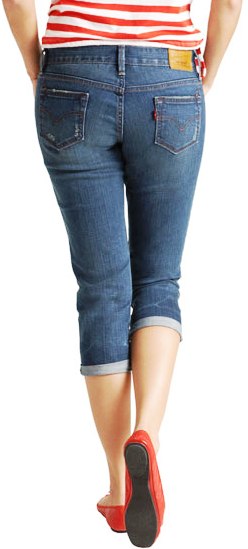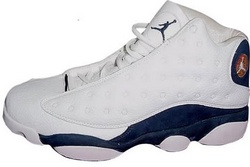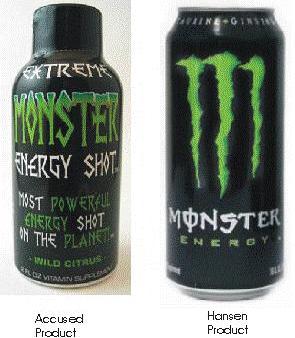San Francisco, CA – Trademark attorneys file trademark infringement, trademark dilution and Lanham Act 43(a) unfair competition lawsuit, on behalf of Levi Strauss & Co., in the Northern District of California, alleging infringement of Levis’ USPTO registered trademarks. Among Levis’ numerous registered trademarks is the famous Arcuate Stitching Design Trademark, which is a distinctive pocket stitching design and “is the oldest known apparel trademark in the United States.” The Arcuate Stitching Design Trademark was first used in interstate commerce in 1873 on clothing products. Levis also owns the Tab Device Trademark “which consists of a small marker of textile or other material sewn into one of the regular structural seams of the garment.” Levis first used the Tab Device Trademark in 1936 on the rear pocket of its pants when a sales manager suggested it to distinguish Levis’ clothing and jeans from those of competitors.
 Levis alleges that defendant Jeans City manufactures, sources, markets and/or sells “jeans that diplay designs on the rear pockets that are confusingly similar to [Levis’] Arcuate and Tab trademarks.” The complaint alleges that “Jeans City’s actions have caused and will cause [Levis] irreparable harm for which money damages and other remedies are inadequate. Unless Jeans City is restrained by this Court, Jeans City will continue and/or expand the illegal activities alleged in this Complaint and otherwise continue to cause great and irreparable damage and injury to Levis.” Levis claims that it will be harmed by not being able to use and control use of its trademarks, a likelihood of confusion, mistake and deception created in the minds of consumers, false association between Levis and Jeans City, and loss of goodwill. The complaint alleges the following causes of action: (1) Trademark infringement under 15 U.S.C. § 1114; (2) Federal unfair competition, false designation of origin, and false description under section 43(a) of the Lanham Act, 15 U.S.C. § 1125(a); (3) Federal trademark dilution under the Lanham Act section 43(c), 15 U.S.C. § 1125(c); (4) California dilution and trademark infringement under Cal. Bus. & Prof. Code §§ 14320, 14330, 14335, 14340; and, (5) Unfair competition under Cal. Bus. & Prof. Code § 17200. The case is titled Levis Strauss & Co. v. Jeans City USA, Inc., CV08-01639 WHA (N.D. California).
Levis alleges that defendant Jeans City manufactures, sources, markets and/or sells “jeans that diplay designs on the rear pockets that are confusingly similar to [Levis’] Arcuate and Tab trademarks.” The complaint alleges that “Jeans City’s actions have caused and will cause [Levis] irreparable harm for which money damages and other remedies are inadequate. Unless Jeans City is restrained by this Court, Jeans City will continue and/or expand the illegal activities alleged in this Complaint and otherwise continue to cause great and irreparable damage and injury to Levis.” Levis claims that it will be harmed by not being able to use and control use of its trademarks, a likelihood of confusion, mistake and deception created in the minds of consumers, false association between Levis and Jeans City, and loss of goodwill. The complaint alleges the following causes of action: (1) Trademark infringement under 15 U.S.C. § 1114; (2) Federal unfair competition, false designation of origin, and false description under section 43(a) of the Lanham Act, 15 U.S.C. § 1125(a); (3) Federal trademark dilution under the Lanham Act section 43(c), 15 U.S.C. § 1125(c); (4) California dilution and trademark infringement under Cal. Bus. & Prof. Code §§ 14320, 14330, 14335, 14340; and, (5) Unfair competition under Cal. Bus. & Prof. Code § 17200. The case is titled Levis Strauss & Co. v. Jeans City USA, Inc., CV08-01639 WHA (N.D. California).
 Los Angeles Intellectual Property Trademark Attorney Blog
Los Angeles Intellectual Property Trademark Attorney Blog



 Innovage did not wait for Style Asia to disturb its harmonious, Zen like use of its Feng Shui trademark and instituted a lawsuit against Style Asia. Innovate alleges that it, and not Style Asia, was first to use the Feng Shui trademark and despite Style Asia’s trademark registration, Innovage sued for trademark infringement and unfair competition under section 43(a) of the Lanham Act (15 U.S.C. § 1125(a)). The complaint alleges that Style Asia’s use of the Feng Shui trademark “is likely to cause confusion, mistake and deception of the public as to the identity and origin of its own and of Innovage’s goods, causing irreparable harm to Innovage.” The complaint also asserts a California common law unfair competition claim and alleges that Style Asia took advantage of Innovage’s goodwill in the trademark. Innovage also asks the Court to declare that it does not infringe on Style Asia’s trademark and requests the Court order cancellation of the registration at the USPTO. The case is titled Innovage LLC v. Style Asia, Inc., CV08-00310 JVS (Central District California).
Innovage did not wait for Style Asia to disturb its harmonious, Zen like use of its Feng Shui trademark and instituted a lawsuit against Style Asia. Innovate alleges that it, and not Style Asia, was first to use the Feng Shui trademark and despite Style Asia’s trademark registration, Innovage sued for trademark infringement and unfair competition under section 43(a) of the Lanham Act (15 U.S.C. § 1125(a)). The complaint alleges that Style Asia’s use of the Feng Shui trademark “is likely to cause confusion, mistake and deception of the public as to the identity and origin of its own and of Innovage’s goods, causing irreparable harm to Innovage.” The complaint also asserts a California common law unfair competition claim and alleges that Style Asia took advantage of Innovage’s goodwill in the trademark. Innovage also asks the Court to declare that it does not infringe on Style Asia’s trademark and requests the Court order cancellation of the registration at the USPTO. The case is titled Innovage LLC v. Style Asia, Inc., CV08-00310 JVS (Central District California). Defendants also sell an energy product under the trademark of Monster Energy Shot. Hansen alleges that “without permission or authority from Hansen, Defendants have infringed Hansen’s MONSTER Marks in interstate commerce in connection with Defendants’ making, using, promoting, advertising, selling, and/or offering to sell the MONSTER ENERGY SHOT drink.” The complaint also states that, by choosing a similar color scheme on their containers, “Defendants have infringed Hansen’s MONSTER trade dress in interstate commerce in connection with Defendants’ making, using, promoting, advertising, selling, and/or offering to sell its MONSTER ENERGY SHOT energy drink.” The complaint asserts the following causes of action: (1) Trademark infringement 15 U.S.C. §§ 1114; (2) Trademark dilution under the Lanham Act section 43(c), 15 U.S.C. § 1125(c); (3) False designation of origin and trade dress infringement under section 43(a) of the Lanham Act, 15 U.S.C. § 1125(a); (4) California trademark dilution under Cal. Bus. & Prof. Code § 14330; (5) Unfair competition under Cal. Bus. & Prof. Code §§ 17200 and 17500; (6) Common law trademark infringement; (7) Common law trade dress infringement; and, (8) California common law unfair competiton. The case is titled Hansen Beverage Company v. N2G Distributing, Inc., et al., EDCV08-0357 VAP (C.D. California).
Defendants also sell an energy product under the trademark of Monster Energy Shot. Hansen alleges that “without permission or authority from Hansen, Defendants have infringed Hansen’s MONSTER Marks in interstate commerce in connection with Defendants’ making, using, promoting, advertising, selling, and/or offering to sell the MONSTER ENERGY SHOT drink.” The complaint also states that, by choosing a similar color scheme on their containers, “Defendants have infringed Hansen’s MONSTER trade dress in interstate commerce in connection with Defendants’ making, using, promoting, advertising, selling, and/or offering to sell its MONSTER ENERGY SHOT energy drink.” The complaint asserts the following causes of action: (1) Trademark infringement 15 U.S.C. §§ 1114; (2) Trademark dilution under the Lanham Act section 43(c), 15 U.S.C. § 1125(c); (3) False designation of origin and trade dress infringement under section 43(a) of the Lanham Act, 15 U.S.C. § 1125(a); (4) California trademark dilution under Cal. Bus. & Prof. Code § 14330; (5) Unfair competition under Cal. Bus. & Prof. Code §§ 17200 and 17500; (6) Common law trademark infringement; (7) Common law trade dress infringement; and, (8) California common law unfair competiton. The case is titled Hansen Beverage Company v. N2G Distributing, Inc., et al., EDCV08-0357 VAP (C.D. California). The defendant is alleged to have “registered and/or used over four million (4,000,000) domain names.” Plaintiffs allege that the defendant has used an automated process to register domain names that are confusingly similar to the Neiman Marcus registered trademarks. The domain names are numerous misspellings of the trademarks. The complaint alleges that the defendant’s “typo-squatting” tactics are also used to cybersquat on other famous trademarks. The defendant allegedly provides pop-up and pop-under advertisements to be displayed on the confusingly similar domain names and defendant makes income from the pay-per-click advertisements. The complaint alleges the following causes of action: (1) Cybersquatting under 15 U.S.C. § 1125(d); (2) Trademark infringement 15 U.S.C. §§ 1114; (3) Unfair competition and false designation of origin under section 43(a) of the Lanham Act, 15 U.S.C. § 1125(a); (4) Trademark dilution under the Lanham Act section 43(c), 15 U.S.C. § 1125(c); (4) Trademark infringement under Cal. Bus. & Prof. Code § 14320; and, (5) Unfair competition under Cal. Bus. & Prof. Code §§ 17200 and 17500. The case is titled The Neiman Marcus Group, Inc. v. Ultra RPM, Inc., CV08-01723 MMM (C.D. California).
The defendant is alleged to have “registered and/or used over four million (4,000,000) domain names.” Plaintiffs allege that the defendant has used an automated process to register domain names that are confusingly similar to the Neiman Marcus registered trademarks. The domain names are numerous misspellings of the trademarks. The complaint alleges that the defendant’s “typo-squatting” tactics are also used to cybersquat on other famous trademarks. The defendant allegedly provides pop-up and pop-under advertisements to be displayed on the confusingly similar domain names and defendant makes income from the pay-per-click advertisements. The complaint alleges the following causes of action: (1) Cybersquatting under 15 U.S.C. § 1125(d); (2) Trademark infringement 15 U.S.C. §§ 1114; (3) Unfair competition and false designation of origin under section 43(a) of the Lanham Act, 15 U.S.C. § 1125(a); (4) Trademark dilution under the Lanham Act section 43(c), 15 U.S.C. § 1125(c); (4) Trademark infringement under Cal. Bus. & Prof. Code § 14320; and, (5) Unfair competition under Cal. Bus. & Prof. Code §§ 17200 and 17500. The case is titled The Neiman Marcus Group, Inc. v. Ultra RPM, Inc., CV08-01723 MMM (C.D. California).